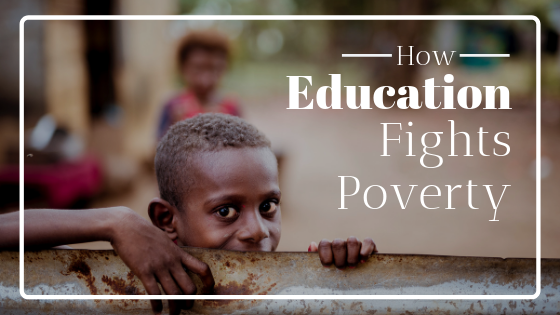The relationship between poverty and education is vital. It’s easy to say that education leads to a better life, but the reasons are very complex and far-reaching. The importance of education in developing countries is even more crucial because of all the obstacles that must be faced, leading to many people getting caught in a multi-generational cycle of destitution. Education is without a doubt the common trait amongst indigent people seeking to climb out of the depths of poverty.
The cycle begins when families cannot afford to send their children to school. Although most schools are free to attend in developing nations, there are still costs in the way of books, transportation, uniforms and supplies, all of which may exceed a family’s budget. In addition, the time that a child spends in the classroom is time taken away from potential wages earned, since many families put their kids to work at a relatively younger age than in the Western world. Families looking at short-term solutions might also seek to marry off a daughter to generate immediate income and reduce the number of mouths to feed.
The problem is, families who raise children without an education are creating future adults who will, in turn, parent children they can not afford to educate either, since they themselves were unable to get a good job due to their educational deficiencies. A good education paves the way for better choices when it comes to looking for employment, which inevitably leads to better income. Removing that element from the equation also removes the freedom of choice when it comes to supporting a family. Even if a child makes it through a certain grade, continuing education isn’t an option if a family is poor because financial problems would cause them to quit school and go to work instead. Rural areas are hit the hardest, with transportation being a timely and costly burden on both the student and the family. The quality of schooling is also a major factor if governments don’t dedicate an appropriate amount of their gross domestic product (GDP) towards financing education. This results in shoddy classroom conditions and subpar equipment. The quality of teaching is also affected.
Empowering children and showing them there is a potential for a better future is one of the ways education fights poverty. In addition to giving them confidence, they also learn that they have rights and learn the way they should be treated.
Teaching proper nutrition and healthcare affects people positively by helping them make better food choices and improving their health through preventative health measures. Children learn by watching, so being a good role model will help future generations to make smarter decisions. Learning how to grow and maintain crops will make people more financially self-sufficient and can give them access to healthy foods. Women who learn about prenatal health through education also raise healthier babies, which leads to healthier mothers and children, and provides less of a stress on the family as a whole.
Literacy is one of the essential reasons for getting an education. The ability to read and write, however, is not only necessary for employment. It is also a survival tool and a way to communicate within a community. Being able to teach populations about the spread of disease or water sanitation could literally mean the difference between life and death.
